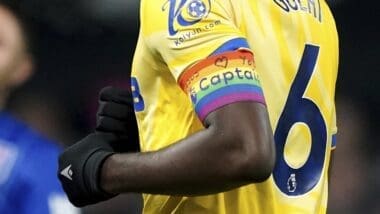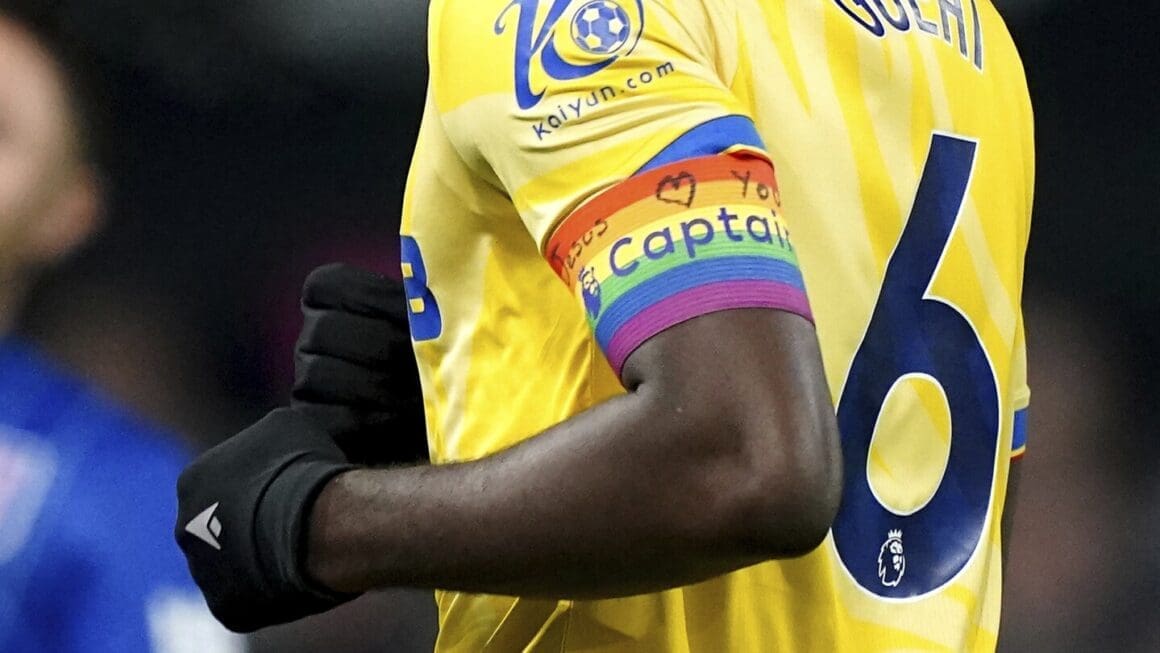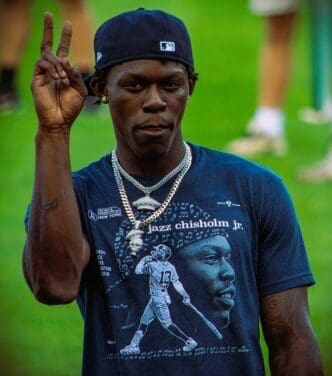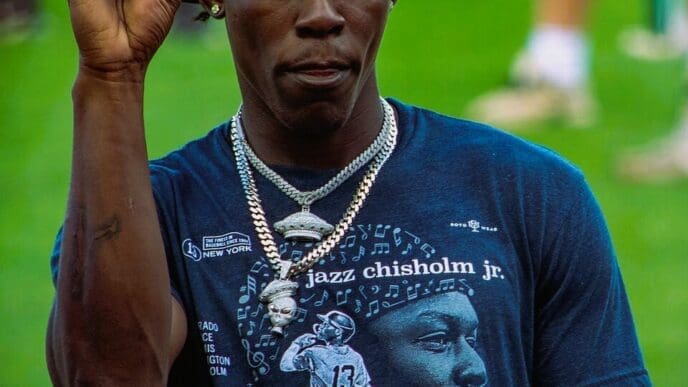In a notable decision, Crystal Palace captain Marc Guehi will not face disciplinary measures from the English Football Association, despite breaching its regulations for a second time by adorning his captain’s armband with a religious message during a Premier League match celebrating LGBTQ+ inclusion.
Marc Guehi, captain of Crystal Palace, found himself at the center of controversy when he chose to wear a Rainbow Laces captain’s armband bearing the message ‘Jesus Heart You’ during a Premier League match against Ipswich Town. This act, marking the second time he defied English Football Association (FA) rules, stirred discussions regarding the intersection of personal beliefs and sports regulations. Despite this repetitive infraction, the FA decided against taking formal action.
The English Football Association enforces Rule A4, which prohibits any religious messages on clothing or equipment during matches. This rule aims to maintain neutrality and prevent the promotion of individual beliefs on the pitch. However, Guehi’s decision to replace the word ‘love’ with a heart symbol in his message did not prevent him from breaching these regulations.
Following this incident, the FA reminded Guehi and Crystal Palace of the existing kit regulations, emphasizing the importance of adhering to them during matches. This reminder follows a previous warning issued when Guehi wore the same religious message on his armband during a match against Newcastle, a game that was also part of the Premier League’s Rainbow Laces campaign.
Rainbow-colored armbands were distributed to all 20 Premier League clubs as part of the Rainbow Laces initiative, a campaign in partnership with LGBTQ+ charity Stonewall that has been ongoing since 2013. However, Guehi’s choice to inscribe his armband with a personal message has highlighted a clash between personal expression and campaign objectives intended to promote inclusivity.
Other instances of divergence from the Rainbow Laces campaign have surfaced. Ipswich’s Sam Morsy, who is a practicing Muslim, opted not to wear the rainbow armband during matches against Nottingham Forest and Crystal Palace, citing his religious beliefs as the reason for his decision. Similarly, Manchester United decided not to have players wear training tops supporting the LGBTQ+ community after Noussair Mazraoui, another practicing Muslim, declined to participate for religious reasons.
Despite these individual stances, clubs like Manchester United have reiterated their commitment to diversity and inclusion, emphasizing that players are allowed to hold individual opinions, which may sometimes diverge from the club’s stance. Bruno Fernandes, the captain for United, did wear the rainbow armband, underscoring the club’s endorsement of the Rainbow Laces campaign.
While the FA’s decision not to penalize Guehi may be seen as a lenient approach, it raises questions about the balancing act between personal faith and the broader values promoted by football organizations. This incident, along with others involving the Rainbow Laces campaign, continues to prompt dialogue around the role of personal beliefs in professional sports.
Marc Guehi’s situation underscores the ongoing debate between personal expression and conformity with established regulations in sports. The FA’s lenient response reflects a delicate balance, acknowledging both individual beliefs and the overarching aim to uphold inclusivity within the sport.
Source: Apnews














